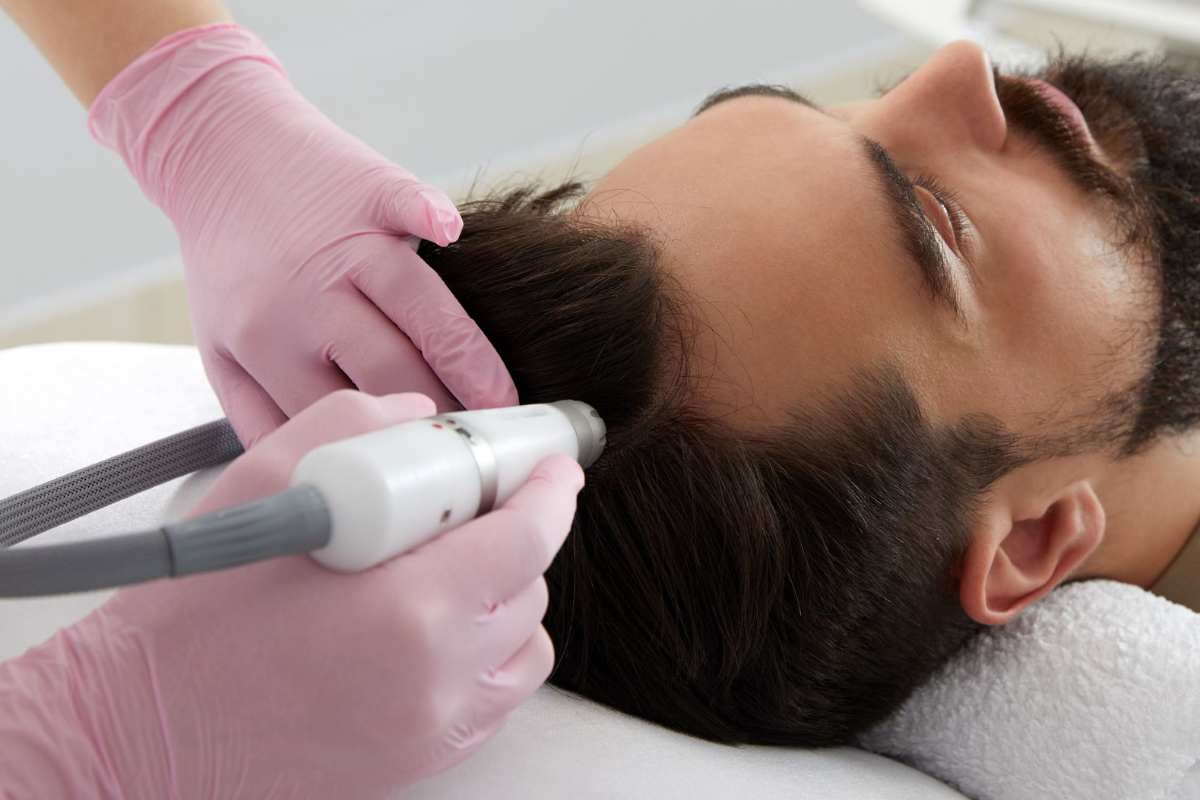Non-Surgical Medication Options for Hair Loss: Hair loss is a fundamental concern that affects millions of adults worldwide. While surgical options like hair transplants are well known, there is a growing interest in non-surgical medication options for addressing this issue.
In this article, you will closely examine non-surgical solutions for hair loss in adults. These treatments offer hope to those dealing with hair loss and can be effective when used correctly..
Table of Contents
Minoxidil: The Pioneer Treatment
Minoxidil is one of the most widely used non-surgical medicines for hair loss. It was first made to treat high blood pressure. Later, doctors found it also helps hair growth.
You apply minoxidil directly to the scalp. It stimulates the hair follicles and encourages new growth. Both men and women can use it. It is sold over-the-counter and has shown good results for many users.
Finasteride: The Hormone Blocker
Finasteride works by lowering levels of a hormone called DHT. This hormone is the main reason for hair loss in people who are genetically prone.
By blocking DHT, finasteride slows down hair loss and may even reverse it. However, it is important to talk to a doctor before using it. Some people experience side effects. Regular medical check-ups help you stay safe while using this treatment
Platelet-Rich Plasma (PRP) Therapy
PRP therapy is a newer method. Doctors take a small sample of your blood, process it, and then inject the platelet-rich plasma into your scalp.
The growth factors in PRP can help repair and stimulate hair follicles. Many people report positive results. However, more research is needed to confirm its long-term benefits.
Low-Level Laser Therapy (LLLT)
LLLT uses low-level lasers or special lights to stimulate the scalp. The treatment increases blood flow and supports thicker hair growth.
Devices for LLLT are available both at clinics and for home use. This makes it a convenient choice for many people.
Ketoconazole Shampoo: Scalp Health Support
Ketoconazole is an antifungal medicine. It is often found in medicated shampoos. While its main use is to treat scalp infections, studies show it may also help reduce hair loss.
It works by lowering inflammation and keeping the scalp healthy, which supports better hair growth.
Biotin Supplements: The Nutritional Boost
Biotin is a B vitamin important for healthy hair, skin, and nails. Most people already get enough from their diet, but some still take supplements for extra support.
Foods like eggs, nuts, and whole grains are natural sources of biotin. A balanced diet helps not only your hair but also your overall health. Always talk to a doctor before starting supplements.
Caffeine-Based Topicals
Caffeine shampoos and serums are gaining popularity. They boost blood circulation in the scalp and may help stimulate hair follicles.
Some people notice thicker and stronger hair after use. Results vary, but research shows promising signs.
Essential Oils: A Natural Option
Oils like rosemary, lavender, and peppermint are sometimes used to improve hair growth. They are usually diluted and massaged into the scalp.
These oils may improve circulation and nourish hair follicles. Some people also enjoy the calming scent, which makes the routine more pleasant.
Conclusion
Non-surgical treatments for hair loss give hope to many adults. Options include minoxidil, finasteride, PRP therapy, and laser treatment. Other methods, like ketoconazole shampoo, biotin, caffeine topicals, and essential oils, can also support hair health.
Remember: results vary from person to person. The best step is to consult a doctor or dermatologist to find the treatment that suits you. With the right plan, you can manage hair loss and feel more confident.

